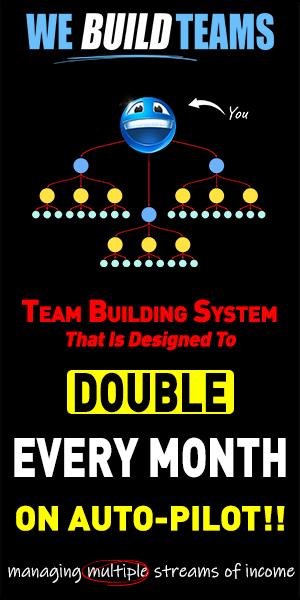Diane Hochman, MLM, network marketing, affiliate marketing, Sparky AI, digital marketing, personal branding, and AI tools:
Diane Hochman, MLM, network marketing, affiliate marketing, Sparky AI, digital marketing, personal branding, and AI tools. Diane Hochman: Authentic MLM Mentorship for Modern Network Marketers
In the fast-paced world of MLM and network marketing, it’s easy to get lost in a sea of automation tools, sales scripts, and hype-driven tactics. But amidst the noise, one voice continues to rise above the rest—Diane Hochman. With over 25 years of experience in home-based business and personal branding, Diane has become a trusted mentor to thousands looking for a more authentic and sustainable way to succeed in affiliate marketing and network marketing.
Who Is Diane Hochman?
Known as the “Liberation Mentor,” Diane Hochman hasn’t had a job in over two decades. Her signature message, “It’s not about doing—it’s about BEING,” has earned her a loyal following across social media:
-
Facebook: 17.2K+ followers
-
YouTube: 9.6K subscribers
-
Instagram: 9.9K followers
-
X (Twitter): Active and engaged audience
Her unique approach to MLM marketing focuses on magnetic attraction, not manipulation. She teaches network marketers to build their business by building themselves—and her message is especially relevant in the age of AI and automation.
The Power of Authentic Network Marketing
Diane Hochman teaches the fundamentals of personal branding, digital marketing, and relationship-based selling. She helps new and seasoned marketers move away from outdated, spammy methods and toward more meaningful engagement.
Instead of cold messaging strangers, she teaches you to show up, be visible, and let people come to you. This “attraction marketing” model isn’t just more pleasant—it’s more profitable.
In a time when AI marketing tools like Sparky AI are revolutionizing how we follow up and nurture leads, Diane reminds us that technology works best when rooted in human connection. Whether you’re automating follow-ups or using an AI assistant for network marketing, your energy and authenticity still matter.
Diane Hochman, MLM, network marketing, affiliate marketing, Sparky AI, digital marketing, personal branding, and AI tools
How Diane Hochman Merges Old-School Principles with New-School Tools
Diane’s training is built on timeless marketing principles:
-
Tell your story
-
Serve your audience
-
Lead with value
-
Build community
But she’s also highly adaptive. Through her brand “My Messy AI Life,” she dives into the world of AI-powered digital marketing and explores how tools like Sparky AI can empower the modern marketer.
She encourages her audience to think beyond algorithms and instead align their content, energy, and message with who they really are. This is the human touch that separates successful MLM leaders from struggling distributors.
Think Differently—Earn Differently
Diane’s core philosophy, “Think differently—earn differently,” challenges the cookie-cutter strategies often seen in affiliate marketing and multi-level marketing. She invites marketers to build from the inside out—to lead with personality, purpose, and passion rather than pressure and persuasion.
Her teachings apply whether you’re:
-
Just starting your MLM business
-
Scaling with AI automation tools
-
Promoting your Sparky AI referral link
-
Building a tribe through social media marketing
In every case, Diane’s message is clear: You are the brand. You are the funnel. Your story is your superpower.
Diane Hochman, MLM, network marketing, affiliate marketing, Sparky AI, digital marketing, personal branding, and AI tools
Why Diane Hochman Is More Relevant Now Than Ever
As the AI marketing revolution transforms how we capture and convert leads, Diane stands as a voice of balance. While tools like Sparky AI automate follow-ups and drive engagement, Diane ensures marketers don’t lose the heart of what makes network marketing powerful—real relationships and personal leadership.
Whether you’re using AI to manage your communications or purchasing leads from your Sparky AI dashboard, Diane’s wisdom can guide you in turning those tools into authentic income-producing assets.
Connect with Diane Hochman Today
If you’re ready to lead with authenticity and grow your MLM business using principles that work—with or without AI—follow Diane Hochman on her channels:
Final Thought: Success in network marketing isn’t about scripts or spamming—it’s about showing up as you. Let Diane Hochman show you how to build a thriving business with integrity, influence, and intention—and let tools like Sparky AI support you, not replace you.
Disclaimer: The information provided in this blog post is for educational and informational purposes only. While Diane Hochman’s insights and strategies are referenced, please note that she does not endorse, promote, or recommend Sparky AI or any specific marketing tools discussed in this post. The content shared is based on the author’s personal perspective and research. Any business decision, including the use of Sparky AI, should be made with careful consideration and, where appropriate, consultation with a qualified professional. We do not guarantee specific outcomes or earnings from any marketing strategies or automation tools discussed.


